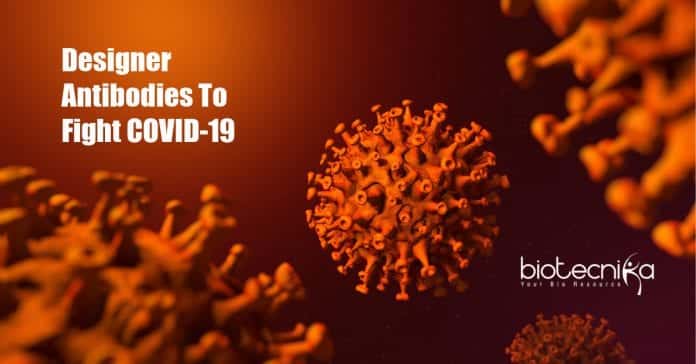Monoclonal Antibodies To Protect From COVID-19 Even Before Vaccines Arrive
While the world is racing to develop a COVID-19 vaccine, equal competition is heating up to produce neutralizing antibodies that could provide instant immunity boost against the virus. The clinical trials of these antibodies are underway and are expected to show promising results in the next few months, probably even before the vaccine trials. Anthony Fauci, head of the National Institute of Allergy and Infectious Diseases (NIAID), said the monoclonal antibodies might get the answer to the COVID-19 pandemic before you get with a vaccine.
Ajay Nirula, a vice president at Eli Lilly, one of several large companies investing in antibodies, said monoclonal antibodies have the potential to be an important bridge until the vaccine is available. Antibodies are likely to be more effective than the currently available repurposed drugs like dexamethasone and remdesivir and can offer protection for health care workers against COVID-19 as well as reduce the severity in hospitalized patients. But producing antibodies are expensive as it involves growing B cells that produce antibodies in bioreactors. On 15 July, AbCellera, Lilly, GlaxoSmithKline, AstraZeneca, Amgen, and Genentech jointly asked the U.S. Department of Justice (DOJ) if they could
share information on manufacturing their monoclonal antibodies to expand and expedite production, without violating antitrust laws.Researchers in academia and industry had begun to identify, tweak, design, and test monoclonal antibodies against the novel coronavirus, soon after the pandemic began. The first human study of a monoclonal antibody was launched by Lilly, in collaboration with AbCellera on 29 May, which conducted a phase I trial testing its tolerability and safety in COVID-19 patients. Lilly’s Chinese partner Junshi Biosciences and Regeneron, followed other safety trials for a cocktail of three monoclonals that work against Ebola.
Regeneron is testing its antibody cocktail in three large-scale, placebo-controlled trials, which is developed from the spike antibody from a person recovered from COVID-19 and from that a mice. 2000 people who live in a house with a confirmed COVID-19 case will be recruited for the prevention trial by NIAID’s COVID-19 Prevention Trials Network (CoVPN), an arm of the Trump administration’s Operation Warp Speed. The company plans to enroll nearly 2600 hospitalized people with severe COVID-19 in one treatment study, whereas another study will involve half that size infected people with mild or moderate symptoms. Lily has launched its phase III trials in 2400 residents.
Amy Jenkins, who heads the Pandemic Prevention Platform (P3) program at the Defense Advanced Research Projects Agency, said an efficacy signal should be available quickly from these trials, even before any vaccine proves effective ad safe. Christos Kyratsous from Regeneron said vaccine trials would take few weeks to generate an immune response in the volunteers and further weeks to get exposed to SARS-CoV-2, whereas antibody treatment trials are performed in already infected people and prevention studies in people who are at high risk of exposing to the virus.
A group of researchers at the Scripps Research led by immunologist Dennis Burton have isolated monoclonal antibodies against the novel coronavirus, which are highly potent in protecting people from infection for months with a single shot.
Even if the monoclonal antibodies don’t beat vaccines to the finish line, they will still have a role to play to protect people from COVID-19, and we need both approaches, in the long run, said Kyratsous. For several reasons, many people may skip vaccination, and also a robust immune response might not happen in elderly people who are immune-compromised.
However, the supply of monoclonal antibodies will be limited, partly due to a modest investment. For example, the government has invested about $750 million for antibodies, much of it in Regeneron, while Operation Warp Speed has committed $8 billion to six different COVID-19 vaccines. Regeneron will produce 70,000 and 300,000 doses of antibodies, whereas Lilly says it will produce 100,000 doses by the end of this year.
But the US alone would require 40 million doses next year. But the number of courses that will be available is hard to project, said Janet Woodcock from the Food and Drug Administration. She noted that the prevention requires less product than the intravenous infusions used in treatment though the amount depends on the individual weight.
Unlike vaccine distribution, discussions have not taken place regarding the distribution of monoclonal antibodies. But on July 23, DOJ acknowledged the supply concerns, giving the green light to those six companies who petitioned for sharing production information. Regeneron, which is optimistic about meeting the need, is not a part of this group.
Seth Berkley, who leads Gavi, the Vaccine Alliance, and also heads an international COVID-19 vaccine effort, said it’s unlikely that the treatment will get down to an easily affordable price globally in the near future.
The major goal of the P3 project that provided four groups with $96 million in seed money is to induce the development of monoclonal antibodies in the body itself, instead of large fermentation tanks. The project plans to inject humans with the mRNA or DNA that codes for the antibody so that the human cells can make the antibodies by themselves. But this has not been tested in humans yet. But, this method could bring down the production cost of antibodies.
Despite the cost, if the monoclonal antibodies prove effective against COVID-19, it could benefit everyone by giving vaccine makers a hint that antibodies are enough to protect a person from COVID-19. The vaccine field would have a tremendous effect in a positive way, and will it will provide a thousand opportunities to accelerate the fight against COVID-19.






























